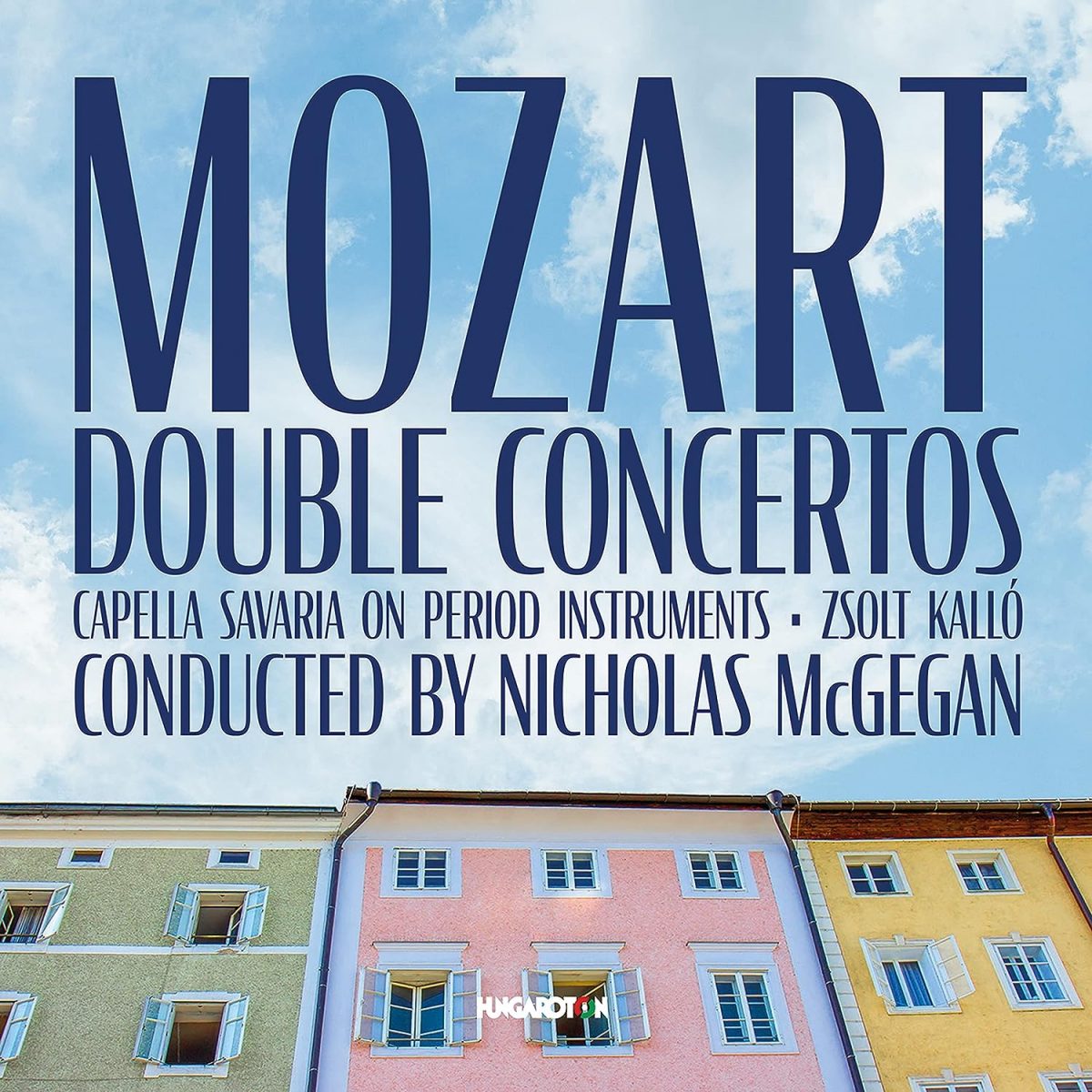Capella Savaria, conducted by Nicholas McGegan
72:20
Hungaroton HCD 32866
Founded in 1981, Capella Savaria is the oldest Hungarian period instrument ensemble and boasts an impressive back-catalogue of authentic accounts of Baroque and classical music mainly on the Hungaroton label and mainly under their chief conductor Nicholas McGegan. There are many period-instrument performances on CD of the famous Sinfonia Concertante by Mozart, and this account stands out for its freshness and musicality, the two soloists particularly moulding the music tastefully and allowing it to breathe. If the ensemble playing is not quite of the highest order, another attractive feature of this CD are the pairings, the unfamiliar Concertone K190/186E for two violins and orchestra and a fragment for violin, piano and orchestra K Anh. 56/315f reconstructed by Robert D Levin. The Concertone is a charming piece dating from Mozart’s Salzburg period, and at times it seems poised to involve the principal oboe and cello in a larger concertante ensemble. Of the Concerto for Violin and Piano the musicologist Alfred Einstein opined that it was ‘one of the greatest losses in art that Mozart did not complete this work’, and indeed from the opening passage and subsequent writing for the large orchestra and the versatile concertante duo it is clear that the composer had set his sights very high. Mozart composed the work in Mannheim, and although the famous court orchestra (the celebrated ‘army of generals’) had recently departed, clearly their impressive musical standards had permeated the local musical scene – Mozart was writing for what was technically an orchestra of amateurs. Although he customarily wrote well for the piano, the same cannot always be said of his writing for solo violin, but in this work he writes brilliantly for both. More than once we hear pre-echoes of Mendelssohn’s imaginative concerto for violin and piano, and we should be grateful for the reconstructive skills of Robert Levin, which have allowed us to enjoy this lovely movement – albeit while yearning for the movements Mozart never completed.
D. James Ross
